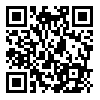Volume 11, Issue 4 (Summer 2025)
IJRN 2025, 11(4): 52-62 |
Back to browse issues page
Download citation:
BibTeX | RIS | EndNote | Medlars | ProCite | Reference Manager | RefWorks
Send citation to:



BibTeX | RIS | EndNote | Medlars | ProCite | Reference Manager | RefWorks
Send citation to:
Razaghi zade F, khoshlahjeh sedgh A. The Effectiveness of Metacognitive therapy on feelings of failure and self-blame in students with addiction to social networks. IJRN 2025; 11 (4) :52-62
URL: http://ijrn.ir/article-1-887-en.html
URL: http://ijrn.ir/article-1-887-en.html
Assistant Professor, Departmen of Clinical Psychology, Faculty of Medicine, Qom Medical Sciences, Islamic Azad University, Qom, Iran. anisssedq@yahoo.com
Abstract: (1827 Views)
Introduction: Students are the human capital and intellectual wealth of a society, and the present study aimed to determine the effectiveness of metacognitive therapy on feelings of frustration and self-blame in students with social media addiction.
Methods: The study was a quasi-experimental study with a pre-test and post-test design with a control group, and its statistical population included all female students with social media addiction who had referred to counseling centers in Qom in 2023–2024. A sample of 30 people was selected using convenience sampling, and 15 people were randomly assigned to each group. In the experimental group, a protocol of group metacognitive therapy sessions was held in ten sessions. Data were collected with the frustration questionnaire scale and the self-blame scale in pre- and post-test and analyzed using multivariate analysis of covariance.
Results: There was a significant difference between the post-test of the experimental and control groups in feelings of frustration (P<0.05, F=25.499) and self-blame (P<0.05, F=40.433). Metacognitive therapy was effective on feelings of frustration and self-blame in students with social media addiction.
Conclusion: Given the effectiveness of metacognitive therapy, it can be suggested that this therapy be used for students involved in problems related to social media addiction.
Methods: The study was a quasi-experimental study with a pre-test and post-test design with a control group, and its statistical population included all female students with social media addiction who had referred to counseling centers in Qom in 2023–2024. A sample of 30 people was selected using convenience sampling, and 15 people were randomly assigned to each group. In the experimental group, a protocol of group metacognitive therapy sessions was held in ten sessions. Data were collected with the frustration questionnaire scale and the self-blame scale in pre- and post-test and analyzed using multivariate analysis of covariance.
Results: There was a significant difference between the post-test of the experimental and control groups in feelings of frustration (P<0.05, F=25.499) and self-blame (P<0.05, F=40.433). Metacognitive therapy was effective on feelings of frustration and self-blame in students with social media addiction.
Conclusion: Given the effectiveness of metacognitive therapy, it can be suggested that this therapy be used for students involved in problems related to social media addiction.
Type of Study: Research |
Subject:
Mental rehabilitation
Received: 2024/05/22 | Accepted: 2025/03/11 | Published: 2025/07/4
Received: 2024/05/22 | Accepted: 2025/03/11 | Published: 2025/07/4
Send email to the article author
| Rights and permissions | |
 |
This work is licensed under a Creative Commons Attribution-NonCommercial 4.0 International License. |




